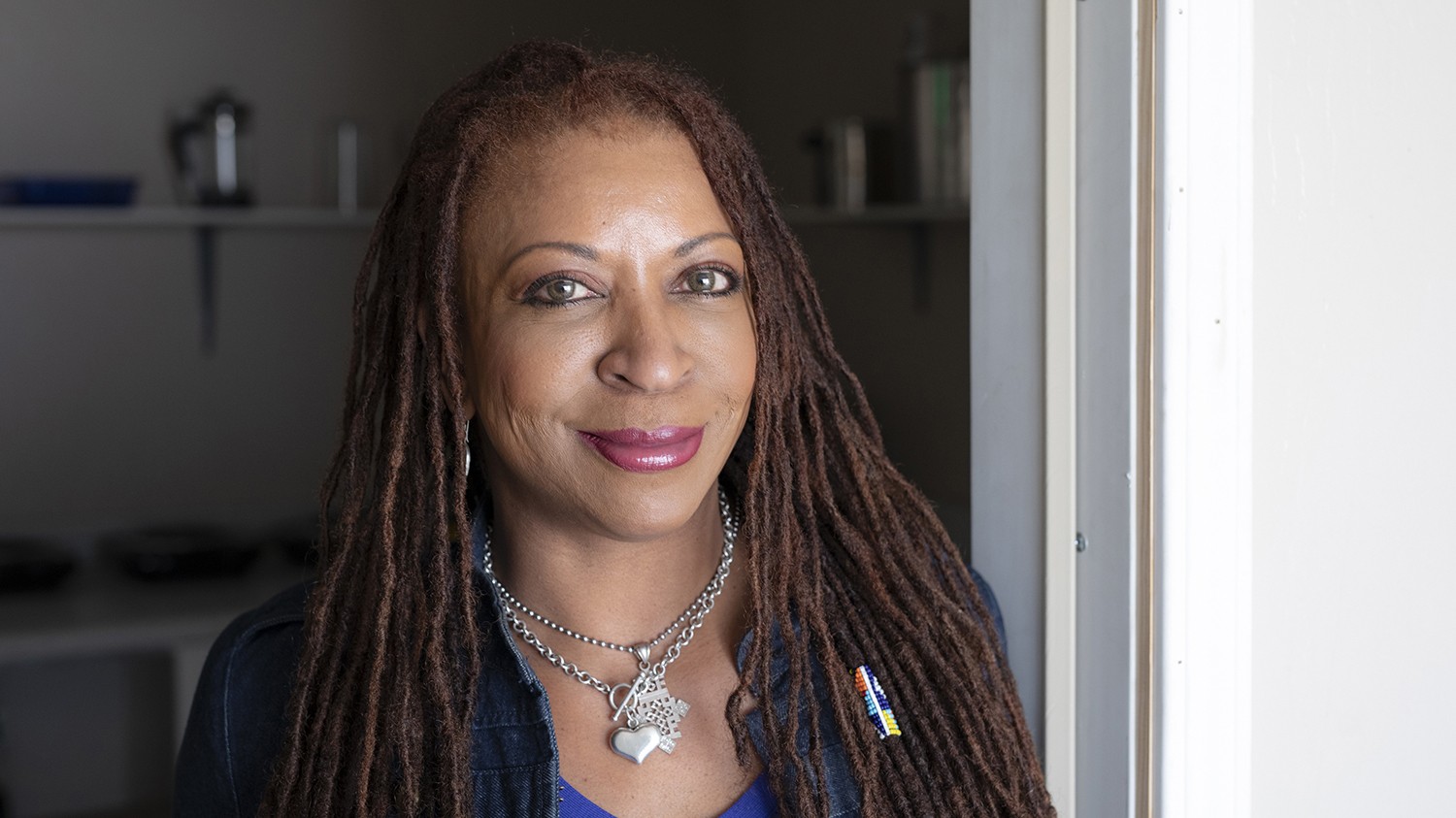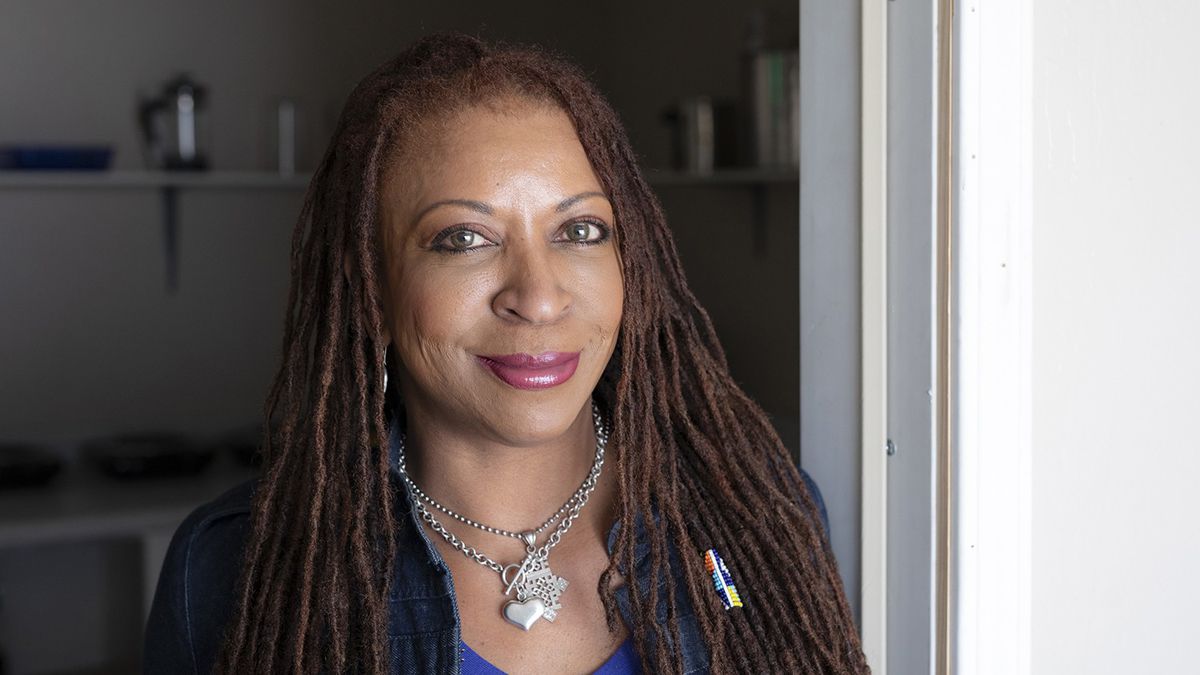
Oakland resident Felicia Shaw has been crafting topical products, like cannabis body butter, for almost eight years in Oakland. And this year, Shaw’s business received a boost from Oakland’s cannabis equity program: She received a coveted spot in the equity permit program, which is designed to help people once targeted by the War on Drugs to get a leg up in the booming legal cannabis industry.
But Shaw said that other equity program applicants are struggling due to the cost of entering the industry. “I’ve seen people I’ve worked with for years — seen them fall by the wayside,” said Shaw, who is the founder and CEO of Mystic Herbal Care.
Since Californians voted to legalize cannabis in November 2016, a handful of California cities have created cannabis equity programs aimed at ensuring that people of color get a foothold in the industry, since communities of color disproportionately suffered from over-policing and profiling during the Drug War. But Oakland’s program has come under fire for not providing necessary financial support for equity participants.
Oakland, however, is looking to get help from the California Cannabis Equity Act of 2018, which Gov. Jerry Brown signed into law in September. The law, also known as Senate Bill 1294, allows the four cities that have adopted or created cannabis equity programs — Oakland, San Francisco, Sacramento, and Los Angeles — to apply for priority funding from a $10 million state fund. The funds can then be used to assist equity program participants launch their businesses.
But while the new fund has the potential to help address a fundamental shortcoming in Oakland’s equity program, cannabis entrepreneurs and those familiar with the industry say that some financial obstacles could still be tough to overcome, including California’s expensive rental market and other capital needs associated with starting a cannabis business.
“The goal is to give folks a leg up so that they too can benefit from this industry,” said Rodney Holcombe, a lawyer with the nonprofit Drug Policy Alliance, a New York-based nonprofit aiming to end the War on Drugs and a key supporter of the bill. “There’s still a need for capital.”
The new state funding can be used to support local equity applicants at cities’ discretion to cover program needs, such as waiving licensing fees, providing business loans to entrepreneurs, and offering trainings to businesses about how to comply with local and state laws.
In a statement emailed to the Express, state Sen. Steven Bradford, D-Gardena, author of SB 1294, said his legislation is designed to create an “inclusive industry,” before the cannabis market “is flooded with wealthy, predominately white, entrepreneurs.”
Greg Minor, the assistant to the Oakland City Administrator who is involved with cannabis and special permitting projects, said the city plans to apply for funding under SB 1294. Eugene Hillsman, deputy director of San Francisco’s Office of Cannabis, said that receiving funding from SB 1294 is “an opportunity that San Francisco will seek aggressively.” The city of Sacramento is considering applying for funding when its program officially begins, said Joe Devlin, chief of Cannabis and Policy Enforcement for the City of Sacramento. And Cat Packer, executive director of the Los Angeles Department of Cannabis Regulation, wrote in an email to the Express that the city hopes to use SB 1294 to help fund and support cannabis businesses.
Advocates say equity programs can help level the playing field in the cannabis industry and allow underfunded entrepreneurs to compete with well-moneyed business interests.
Each of the California equity programs requires that applicants fall under a certain income threshold. In Oakland, for example, applicants must earn below 80 percent of the city’s average median income.
The equity programs also typically require applicants to meet additional criteria. In Oakland, applicants must have either a cannabis-related conviction or have lived for 10 of the past 20 years in a police beat with a disproportionately high number of cannabis-related arrests. In San Francisco, applicants need to meet three out of six additional criteria, such as losing housing in the city after 1995 “due to eviction, foreclosure, or subsidy cancellation.”
But starting a cannabis business still depends on access to cash. Because cannabis is still a federally designated Schedule I drug, equity applicants can’t get loans from traditional banks. This limits where people can get the capital they need to get their business off the ground, because running a cannabis operation includes lots of start-up costs, from workforce training to business marketing. “You either have to have a ton of money, or be able to be supported by the state or some individual to start,” Holcombe said.
Startup costs can be high in California, ranging from half a million to $2 million, said Allan Steiner of Green Rush Consulting, a consulting firm that advises cannabis entrepreneurs. Costs depend on the type of cannabis business. Those that process plant material, like cultivation and manufacturing, are more costly, while delivery companies are less expensive to launch.
Oakland’s equity program opened its loan application process in November, and the loans differ from traditional loans, said Minor. “We don’t require any credit history in order to qualify for our loans,” he explained. The loans are also zero interest, though the first repayment is required after 30 days, a provision consistent with other microloan programs, Minor said.
The loan program is a tiered model in which applicants can apply for different levels of funding depending on where they are in the process of establishing their business. Individual loans range from $5,000 to $50,000 and the maximum amount an Oakland Equity Applicant can borrow is $100,000.
Additional state funding could help the city’s money go even further, said Zachary Knox, vice chair of the Oakland Cannabis Regulatory Commission. The demand is huge — an estimated 600 applicants are vying for money from a $3 million loan budget, he said. “Any support that we can get statewide makes the program run even stronger,” Knox said.
He added that loans alone can’t provide enough financial support to program participants, because getting a start in the industry is so capital intensive.
Shaw also noted that it can be hard for people to even get a bank account to receive a loan or to navigate cumbersome paperwork. “At first, I just used to do this thing, and now I have to climb this mountain,” Shaw said. “Why not just wait for an investor?”
In addition to capital costs, cannabis entrepreneurs and experts expressed interest in using funding from SB 1294 to help defray the costs associated with complying with cannabis state regulations. “The biggest issue for everyone has been the chaotic regulatory process,” said Leslie Valencia, an independent researcher and consultant specializing in cannabis equity. Just trying to be in compliance with these changing regulations is tough on entrepreneurs, she said.
LeVar Eddy, an African-American cannabis entrepreneur looking to start his cultivation business in the Bay Area, described having to navigate quickly changing packaging and labeling regulations earlier this year. Packaging of the final product now requires you to be able to see the actual cannabis, which wasn’t previously the case. “When you make changes that quickly, and you’ve already bought packaging that’s no longer viable, that is a huge cost,” said Eddy, who lives in Hayward, which does not yet have an equity program.
Oakland’s cannabis industry also faces high rent costs and a lack of available space within areas zoned for cannabis businesses, also known as permitted zones. “It’s real estate — that’s what it’s boiling down to. If you don’t have a location, what do you expect a city or state to do?” Shaw said. “It’s almost like digging for gold. If you get that nugget, you better hold on to it.”
Kaine Cherry, a policy fellow at the Hood Incubator, a nonprofit working to increase Black and Brown participation in the industry, points to SB 1294’s permissive language as being a sign that program administrators can be creative with how they use funds to address financial pressures that equity applicants face, including offsetting real estate costs. “There’s room for flexibility if it meets the need of an equity applicant,” Cherry said.
Oakland’s program also has a physical bottleneck in that the city only processes and awards a limited number of applications. “Nothing costs money like waiting,” Steiner said. “When you’re trying to go through the permitting process or stamp process, it’ll take at least a year to get through if you’re lucky.”
Funds from the Cannabis Equity Act can be used to hire new staff or consultants, though no more than 10 percent of funding can be used for those purposes.
In addition to providing funding, SB 1294 requires equity programs to report certain details to the Bureau of Cannabis Control, such as how grant money is used and criteria for selecting equity applicants.
Cherry said the Cannabis Equity Act is beneficial in that it forces cities to maintain their programs. “In order to get any of the grants from that pool, you have to have an equity program, Cherry said. “It will incentivize more equity programs, since there aren’t many in the context of California.”
Regardless of the challenges it faces, Oakland has had a head start on other equity programs.
“The thing that the city of Oakland did right is when they put out the cannabis program, the equity program was at the beginning,” said La Wanda Knox, a consultant with Make Green Go, Oakland’s official technical assistance program for cannabis entrepreneurs. “It was intertwined with the program versus being an afterthought.”











